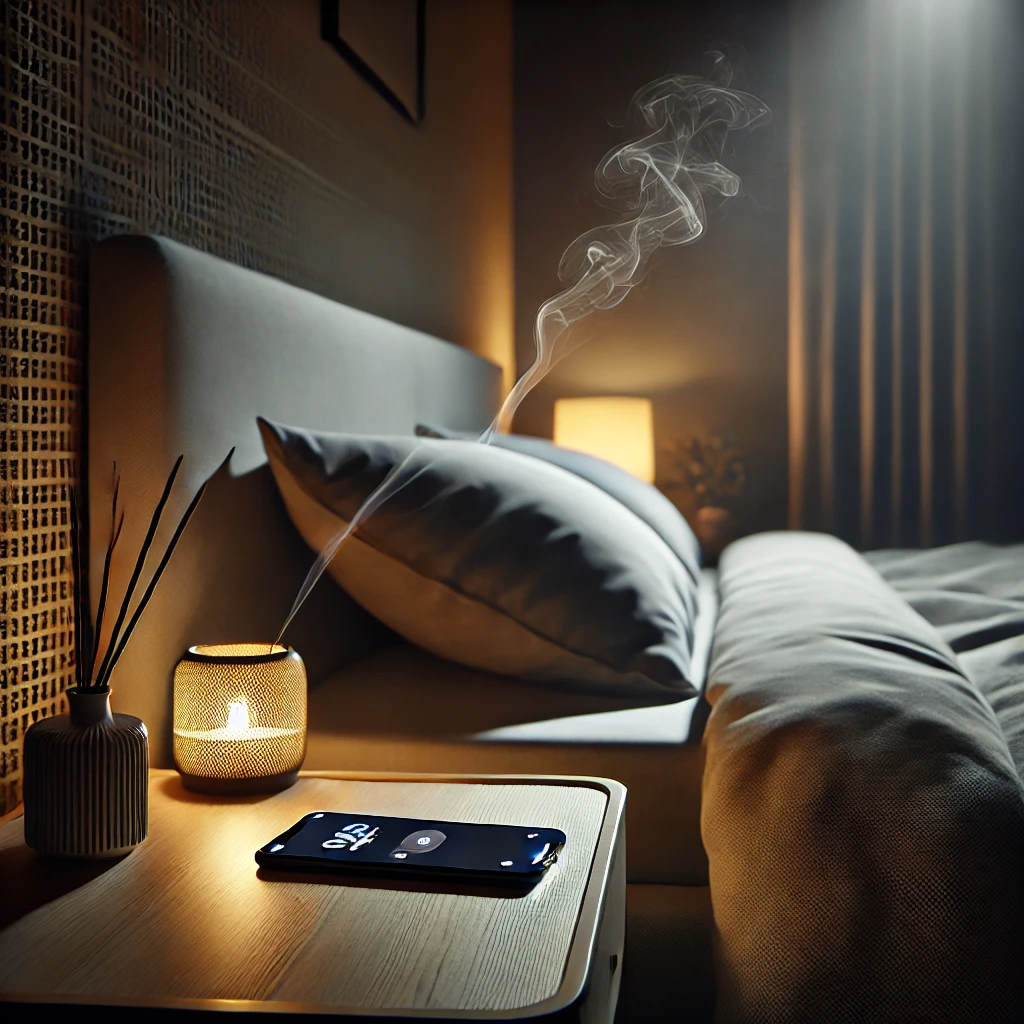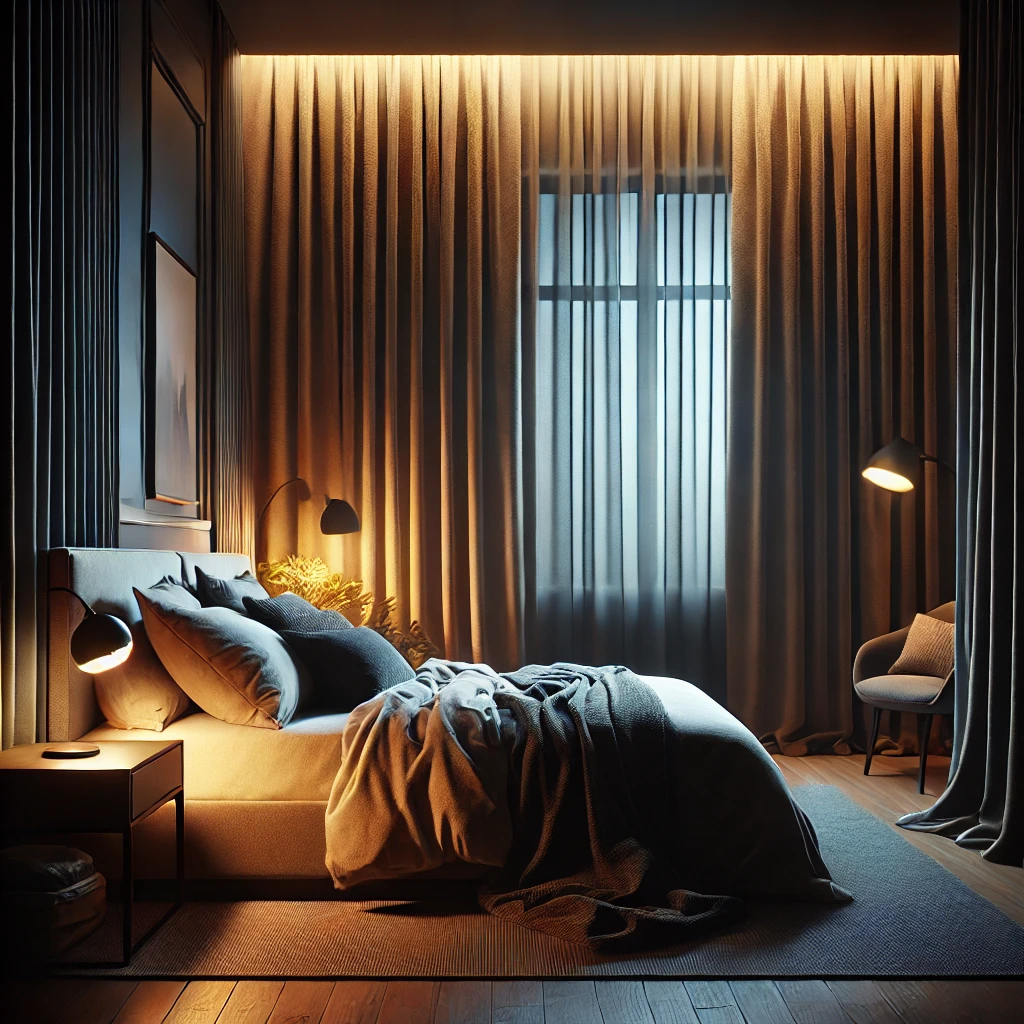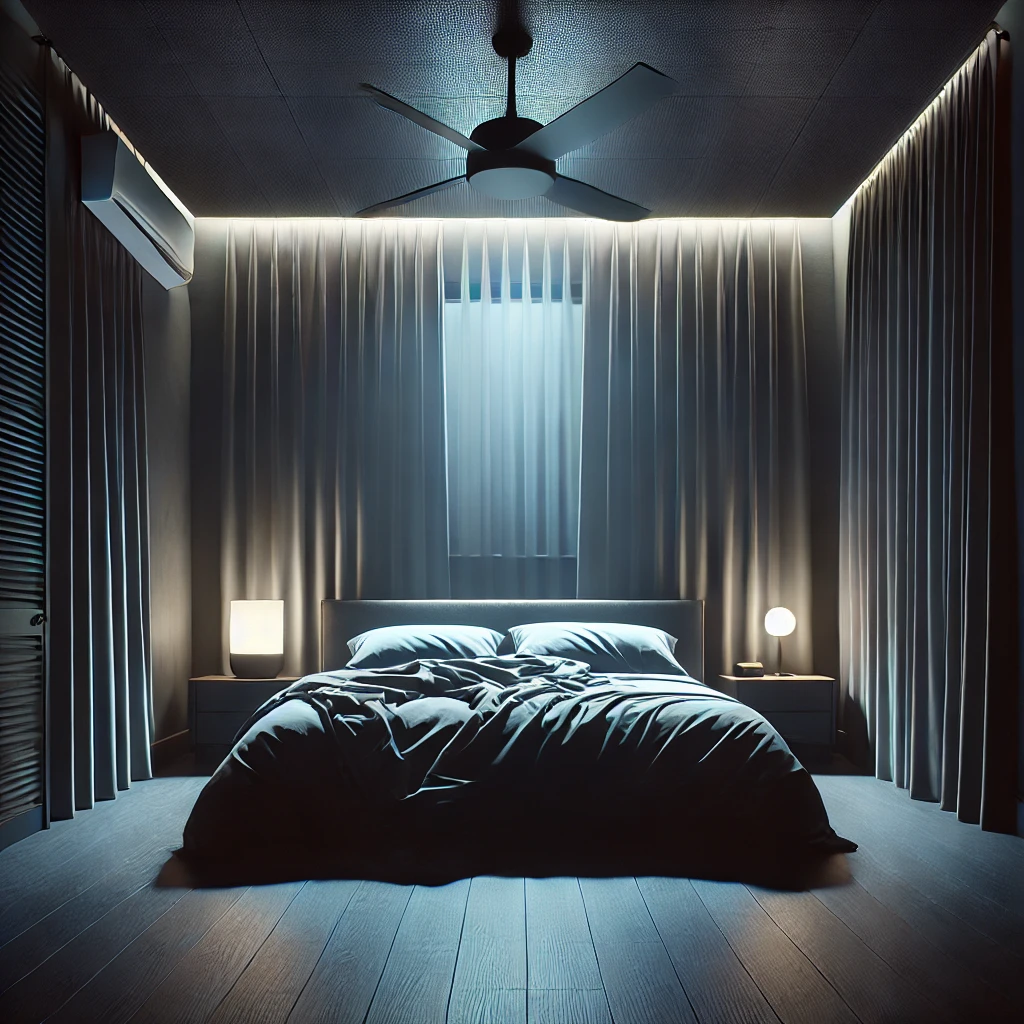Contents
- 0.1 Key Takeaways
- 0.2 Struggling to Sleep? You’re Not Alone
- 0.3 Why is a Bedtime Routine for Sleep Important?
- 0.4 1. Set a Consistent Sleep Schedule
- 0.5 2. Dim the Lights and Power Down Screens
- 0.6 3. Sip a Herbal Tea for Sleep
- 0.7 4. Take a Warm Shower or Bath
- 0.8 5. Journaling: Brain Dump Before Bed
- 0.9 6. Try Gentle Stretching or Yoga
- 0.10 7. Listen to Calm Sounds (or Silence)
- 0.11 8. Keep Your Bedroom Cool and Dark
- 1 Don’t miss these tips!
- 2 Don’t miss these tips!

Key Takeaways
- Invest in comfortable bedding.
- Establish a consistent sleep schedule.
- Create a relaxing sleep environment.
- Avoid screens before bedtime.
- Engage in calming activities like reading and journaling.
- Incorporate herbal tea and warm baths for relaxation.
- Practice mindfulness or meditation regularly.
- Utilize gentle stretching to relieve tension.
- Avoid heavy meals and stimulants close to bedtime.
- Use calming sounds or aromatherapy for improved sleep.
Struggling to Sleep? You’re Not Alone
You’re here because you’ve probably spent one too many nights staring at your ceiling, wondering why sleep feels impossible. You’re searching for a bedtime routine for sleep that truly works, not just generic advice you’ve heard a hundred times. The good news is that you’ve landed in the right place. In this detailed guide, I’ll walk you through creating your ideal bedtime routine, step-by-step.
Why is a Bedtime Routine for Sleep Important?
A consistent bedtime routine for sleep can significantly improve sleep quality, enhance mood, and boost overall health. It signals your brain and body that it’s time to relax and prepare for deep sleep. According to sleep research, sticking to a structured routine helps regulate your body’s internal clock, improving sleep duration and quality.
1. Set a Consistent Sleep Schedule
Let’s start with the cornerstone of any effective bedtime routine for sleep: going to bed and waking up at the same time—yes, even on weekends.
📌 Why it works:
Your body runs on something called a circadian rhythm. When your sleep time is all over the place, it throws off everything from hormone production to energy levels. According to the Sleep Foundation, consistent bedtimes help your brain learn when to start producing melatonin, the natural hormone that helps you feel sleepy.
📣 What real people say:
“Honestly, just going to bed at the same time every night made a huge difference. I used to crash at 2 AM and now I start yawning by 10:30—it’s like clockwork.”
– Mark J., 27, Toronto
🎯 Tip:
Set an alarm—not to wake up, but to tell you it’s time to start winding down.
2. Dim the Lights and Power Down Screens
This one might hurt a bit—especially if your idea of winding down involves scrolling Instagram or watching Netflix. But hear me out.

📌 Why it works:
Blue light from screens suppresses melatonin. Harvard researchers found that exposure to blue light before bed can delay your body’s internal clock and reduce both the quantity and quality of sleep.
📣 From a review on Reddit’s r/sleep:
“Turning off my phone an hour before bed was way harder than I thought. But once I did, I started falling asleep within 15 minutes instead of tossing around for an hour.”
🎯 Tip: Try switching to warm lighting after 8 PM and use a “blue light filter” if you absolutely must be on your screen.
3. Sip a Herbal Tea for Sleep
Here’s where your nightly wind-down gets a little cozier. Herbal tea isn’t just about the placebo effect—it really can prep your body for rest.
📌 Why it works:
Chamomile contains apigenin, a compound that binds to brain receptors and promotes drowsiness. Valerian root, passionflower, and lemon balm have all been shown to support deeper, more restful sleep.
📣 What users are saying:
“I’ve tried everything, but Sleepytime Extra (with valerian) is the only tea that actually makes me feel drowsy. It’s like a soft knock-out punch.”
– Jenn K., 31, Austin

🎯 Tip: Steep the tea for 5–7 minutes. Make it part of your wind-down ritual—cup in hand, maybe paired with a book or soft music.
4. Take a Warm Shower or Bath
This one’s a game-changer if you haven’t tried it already.

📌 Why it works:
A warm shower or bath temporarily raises your body temperature. Once you step out, your temperature drops, which signals to your brain that it’s time to sleep. Studies show people fall asleep faster and experience deeper sleep after a warm bath 1–2 hours before bed.
📣 From a user on Quora:
“I do a 15-minute hot shower before bed, and it’s almost like hitting a reset button. It melts the day off and I’m relaxed enough to go to sleep without overthinking.”
🎯 Tip: Add a few drops of lavender oil to your shower wall or bathwater for bonus aromatherapy benefits.
5. Journaling: Brain Dump Before Bed
Ever lie in bed replaying conversations or making tomorrow’s to-do list in your head? Let’s put that energy on paper.
📌 Why it works:
Journaling helps your brain offload thoughts. A 2018 study published in the Journal of Experimental Psychology found that people who spent five minutes writing down what they needed to do the next day fell asleep significantly faster than those who wrote about what they had already done.
📣 From a user testimonial:
“I didn’t realize how cluttered my head was until I started journaling. Even jotting down a sentence or two makes a huge difference for my sleep.”
– Rachel S., 29, NYC
🎯 Tip: Keep it simple. Bullet points. Gratitude notes. Or even just a brain dump of the day’s worries. No structure needed.
6. Try Gentle Stretching or Yoga
Not all movement is created equal. Vigorous exercise right before bed? Probably not ideal. But gentle yoga or stretches? Pure magic.

📌 Why it works:
Stretching triggers your parasympathetic nervous system—aka “rest and digest” mode. It also helps relax tight muscles that might keep you tossing at night.
📣 From an Amazon review for a bedtime yoga mat:
“I never thought five minutes of stretching would affect my sleep, but I wake up less stiff and more refreshed. It’s become part of my nightly ritual.”
🎯 Tip: Focus on slow neck rolls, child’s pose, or legs-up-the-wall. Keep the lights low and your breath slow.
7. Listen to Calm Sounds (or Silence)
Not everyone sleeps best in total silence. That’s where calming sounds come in—think white noise, ocean waves, or binaural beats.
📌 Why it works:
Sound can mask distracting noises like traffic or a snoring partner. Some sounds, like brown noise, are even more effective at promoting deep sleep by lowering brain wave activity.
📣 Real-life experience:
“I use a white noise app every single night. The difference is insane. I barely wake up from outside noises now.”
– Leo R., 35, Vancouver
🎯 Tip: Try a few options—brown noise, pink noise, rainstorms—and see what feels most calming. Headphones not required.
8. Keep Your Bedroom Cool and Dark
A bedtime routine for deep sleep doesn’t stop at your habits—it extends to your sleep environment too.

📌 Why it works:
Experts agree the optimum sleep temperature is between 60–67°F (15.5–19.5°C). Your body naturally cools during sleep, and a cool room helps that process along. Darkness is just as important—light exposure can delay melatonin production.
📣 What people say:
“I bought blackout curtains and a cooling blanket and holy crap—it’s like my body finally figured out what sleep is supposed to feel like.”
– Tara D., 26, Miami
🎯 Tip: Set a smart thermostat to lower the temp at night and invest in blackout curtains or an eye mask.
9. Avoid Late-Night Snacks or Heavy Meals
This one’s controversial, especially if you’re a midnight cereal fan. But if sleep is your priority, it’s worth paying attention to.
📌 Why it works:
Eating too close to bedtime, especially heavy or spicy foods, can trigger digestion issues, heartburn, and disrupted sleep cycles. Instead, aim for your last meal at least 2–3 hours before sleep.
📣 User quote from YouTube comment:
“Cutting out my nightly snacks was hard, but my sleep improved almost instantly. I feel lighter and I don’t wake up groggy.”
🎯 Tip: If you’re starving, go for a light snack—banana with almond butter or a handful of pumpkin seeds.
10. Create a “No-Stress Zone”
Your bed is for two things: sleep and… well, the other thing. Keep work, stress, and screens out of it.
📌 Why it works:
Your brain builds associations. If you’re answering emails or watching thrillers in bed, your brain doesn’t see the bed as a sleep space—it sees it as a place of stimulation. Over time, this weakens your ability to fall asleep quickly.
📣 From a Reddit thread on sleep hygiene:
“I used to work from bed thinking it was cozy. Then I read about sleep associations. Now my bed is sacred—and my sleep’s way better.”
🎯 Tip: Design your bedroom to signal calm—minimal clutter, soft lighting, and neutral colors.
Sample Bedtime Routine Timeline (Start 60–90 Minutes Before Bed)
Let’s say your goal is to be asleep by 11:00 PM:
| Time | Action |
|---|---|
| 9:30 PM | Turn off screens, dim the lights |
| 9:40 PM | Drink herbal tea while journaling |
| 9:50 PM | Take a warm shower |
| 10:10 PM | Do light stretching or yoga |
| 10:25 PM | Read a physical book (or meditate) |
| 10:45 PM | Turn on white noise, get into bed |
| 11:00 PM | Lights off, deep breathing, sleep 😴 |
Final Thoughts: Build Your Own Bedtime Routine for Sleep
Building a consistent bedtime routine for sleep isn’t about being perfect every night. It’s about finding your rhythm—creating a repeatable, calming sequence that tells your brain it’s safe to shut down.
Start small. Pick just one or two habits from the list above and build from there. Your body will adapt, and before you know it, bedtime becomes less of a battle—and more of a treat.
“When I started treating bedtime like a ritual instead of a chore, everything changed. Now it’s my favorite part of the day.”
– Claire M., 34, Chicago
